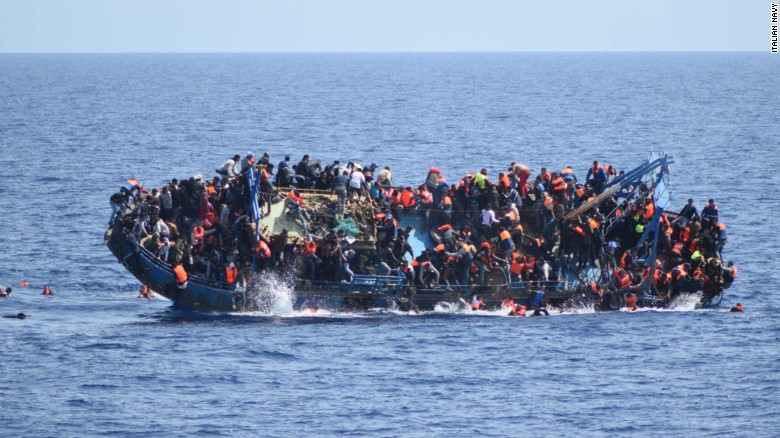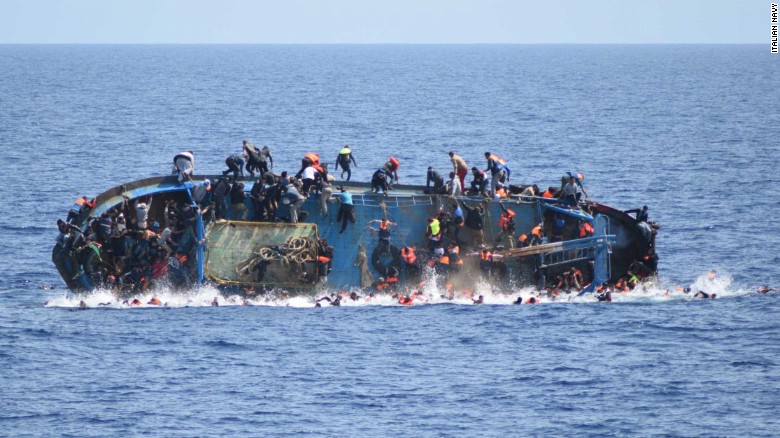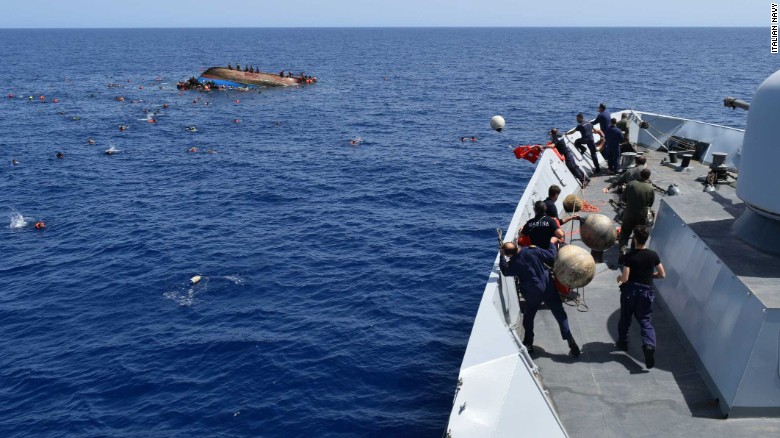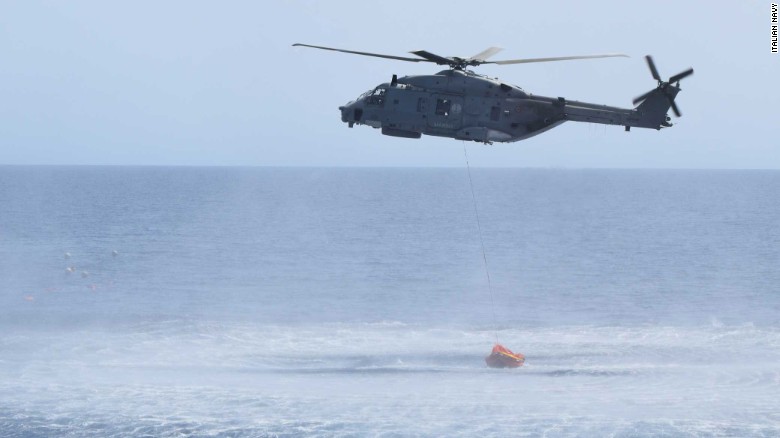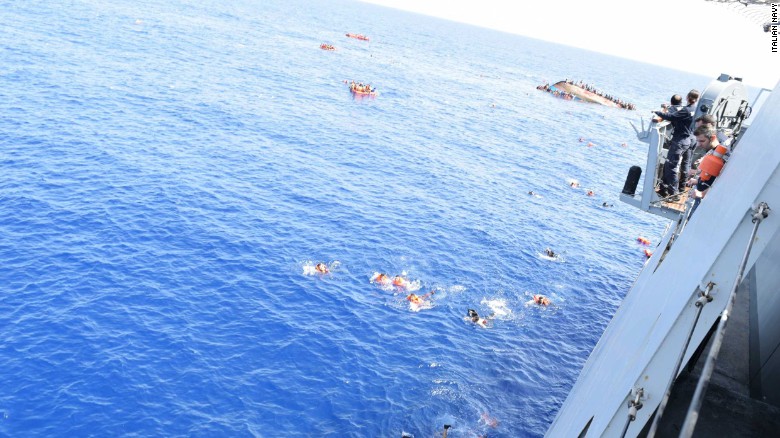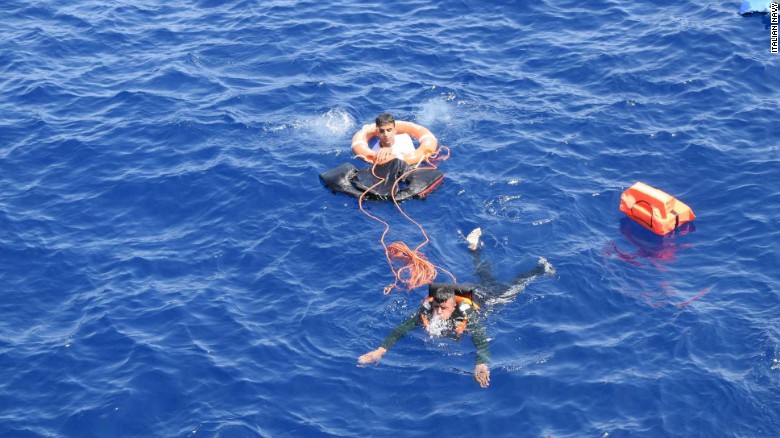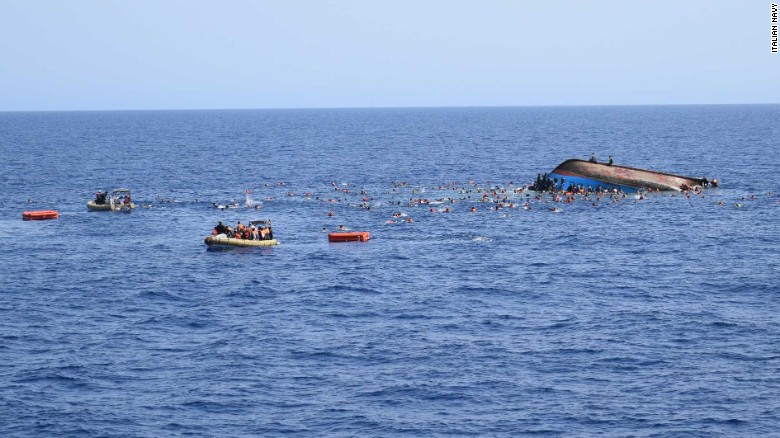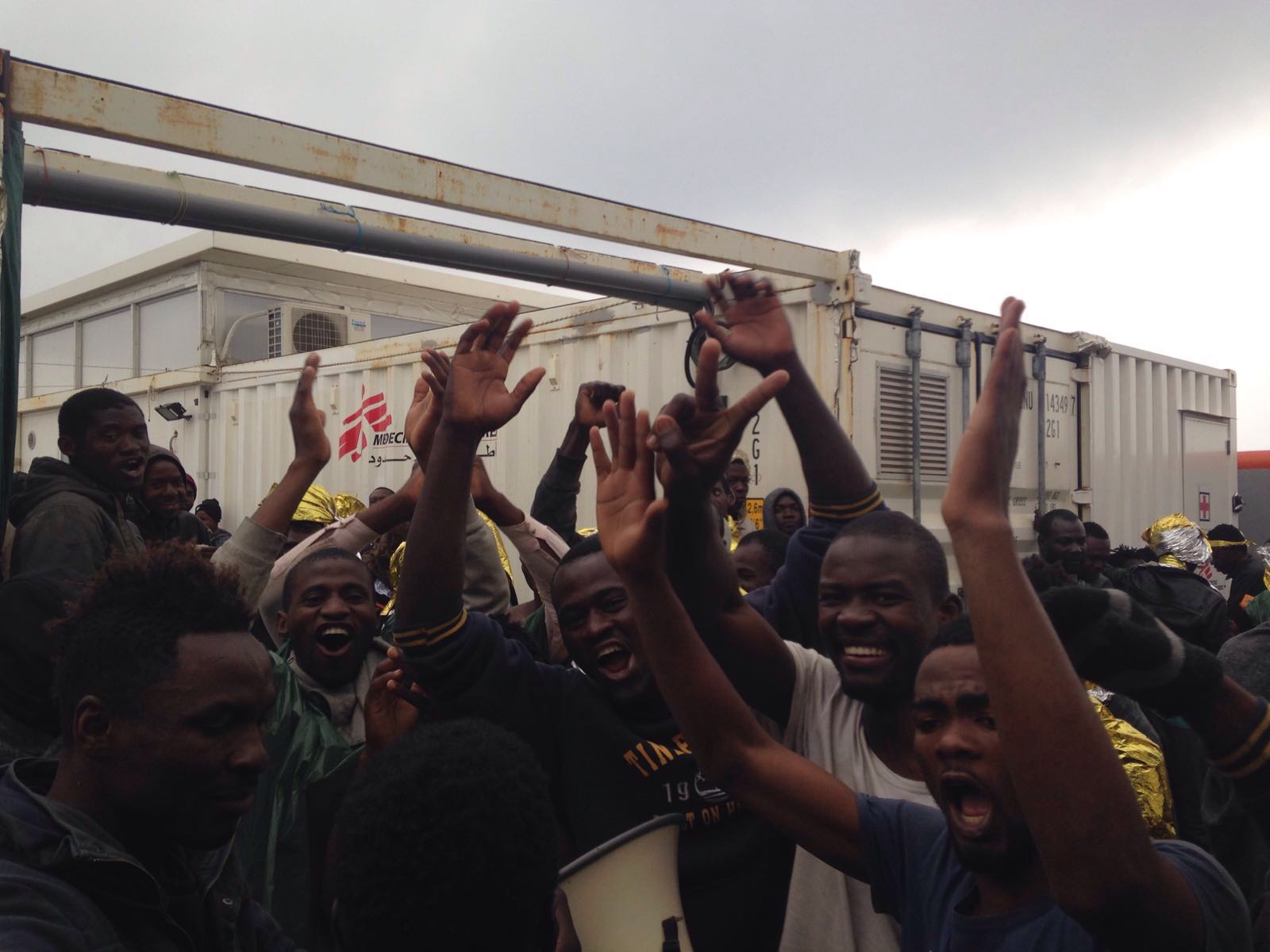At least 65 migrants have died from shipwrecks in the Mediterranean Sea in the past week. And with hundreds still missing, officials fear the death toll could soar above 700.
Most of the victims were on three ill-fated boats.
About 100 people remain missing Sunday after a boat capsized Wednesday, said Federico Fossi, spokesman for the United Nations’ refugee agency. Five people died in that disaster; more than 560 survived.
On Thursday, another migrant boat capsized and sank. Of the 670 on board, 15 people died, about 104 survived and roughly 550 remain missing, Fossi said.
Migrants: By the numbers
194,611: Migrants who have arrived in Europe so far this year*
156,157: Migrants who arrived in Greece in 2016
37,363: Migrants who arrived in Italy in 2016
1,475: Migrants who died trying to cross the Mediterranean this year
*As of May 25, 2016
Source: International Organization for Migration
And on Friday, another migrant boat started taking in water. It’s not clear how many people were on board, but at least 45 people died.
Fossi said most of the migrants were from Somalia, Eritrea and Sudan. Many Somalians are trying to escape Al-Shabaab and clan warfare; Eritreans want to flee repression or military service. And in Sudan, pockets of fighting will likely continue in parts of Darfur through next year, displacing many refugees, the U.N. refugee agency predicts.
At least 1,475 migrants have died so far this year, according to the International Organization for Migration. But that number could skyrocket if the roughly 650 missing are confirmed dead.
But the situation could have been much worse. More than 12,000 migrants were rescued from the Mediterranean in the past week, the Italian Navy, Coast Guard and Interior Ministry said.
Medecins Sans Frontiers (Doctors Without Borders) deployed two search-and-rescue boats, called the Dignity 1 and the Argos, in the Mediterranean.
In just the first five months of this year, more than 194,600 migrants have fled to Europe. That’s double the number of migrants who fled in the first five months of 2015, according to the International Organization for Migration.
And even if they survive the dangerous journey to Europe, many migrants face uncertain futures.
Greece, for example, started relocating more than 8,000 migrants from an overwhelmed transit camp on its border with Macedonia — a country that had shut down its side of the border to choke off the flow of migrants.
Greek government spokesman George Kyritsis said new facilities can house 6,000 people, and more shelters should be ready soon.
But what will happen to those migrants — and the nearly 200,000 others who have fled to Europe this year — remains unclear.

























